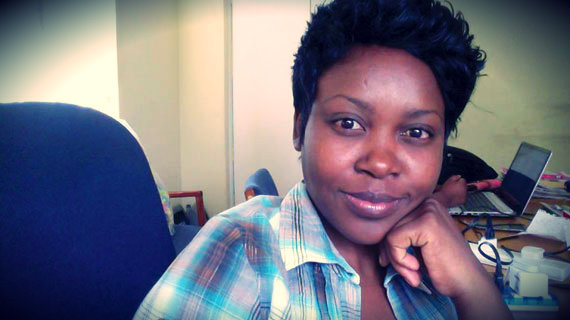
IN Zimbabwe, CIOs (Central Intelligence Organisation) come in all shapes and sizes.
– Delta Ndou
A close friend of mine based in the Diaspora recently came for a visit and one of the first things she asked was why someone in Bulawayo had accosted her to inform her that I am a member of the “dreaded” CIO and advised her to steer clear of me for her own safety.
In case you didn’t get the memo, people that don’t agree with the MDC (especially the Morgan Tsvangirai-led faction) are generally dismissed as CIOs, Zanu PF infiltrators, sellouts, Zanuiods or Zanufied, etc. So obviously, CIOs come in all shapes and sizes in this country.
The “title” of CIO is bestowed randomly upon any person who makes the mistake of holding an independent view (by independent view I mean an opinion that is not anchored in the political narratives advanced by either Zanu PF or the MDC).
One doesn’t need years of training to wake up and find themselves conscripted into the CIO – just have the gumption to criticise Tsvangirai or the temerity to point out (meekly and apologetically) that maybe, just maybe, President Robert Mugabe is right about some things.
The irony is that this language of “sell outs” derives from Zanu PF’s patriotic history narrative and according to Professor Sabelo Gatsheni-Ndlovu, the teachings of patriotic history were mobilised to fragment the people of Zimbabwe into patriots, war veterans, puppets, traitors, sellouts, born-frees and enemies of the State.
Instead of challenging this narrative by putting forward an equally compelling counter-narrative, the MDC chose to follow Zanu PF’s lead by borrowing its language of hate and “aping” its tactics of silencing dissenting voices.
- Chamisa under fire over US$120K donation
- Mavhunga puts DeMbare into Chibuku quarterfinals
- Pension funds bet on Cabora Bassa oilfields
- Councils defy govt fire tender directive
Keep Reading
Inadvertently, the MDC became the thing it purportedly hates.
Ideological feuding is an entrenched characteristic of Zimbabwe’s political landscape and such contestations are to be expected, but thanks to Zanu PF, we now suffer from severe polarity caused by institutionalised “othering”.
We become people who don’t care what the answers are because we are not even allowed to ask the questions for fear of being demonised, insulted, labelled, viciously attacked, demeaned, degraded, dehumanised, delegitimised and left at the mercy of ideological bullies.
The frightening thing is, that while Zanu PF has systematically deployed the politics of difference fragmenting the nation into sell outs and patriots, war veterans and born-frees, etc – the MDC has legitimised this system by equally employing these labels to advance their own narratives and to silence the dissenting views of citizens by dismissing them as CIOs.
Even journalists fall prey to this labelling. Radio Dialogue’s Zenzele Ndebele reportedly stated, “If independent journalists criticise Morgan Tsvangirai and Welshman Ncube, they are labelled traitors, Zanu PF functionaries or operatives of the CIO.”
The same charge is laid against independent citizens who express a view that is critical of opposition party leaders, but this should not be the case given that these are the same political actors who say they want to advance democracy, justice and what not, but then they go on to adopt Zanu PF’s language of “othering” in order to silence citizens.
What about the rest of us who don’t necessarily agree with every thing that the MDCs say? I guess we should just shut up or risk being labelled as CIOs.
How is that fair or just or democratic?
Rather than challenge Zanu PF’s patriotic history and counter its claims through counter-narratives, the opposition political parties seem to have become instrumental in suppressing diverse opinion, promoting intolerance as well as creating a hostile environment for the free flow of ideas.
I refer to this tendency as “ideological bullying”.
In a blog earlier this year, I noted that in the political conversations that I have been privy to, belief perseverance appears to be an ailment that afflicts many Zimbabweans.
Belief perseverance (also known as confirmation bias) is the tendency to cling to one’s initial belief even after receiving new information that contradicts or disconfirms the basis of that belief.
Which is why we end up in a situation where debates on Zimbabwe “generate more heat than light” as Eldred Masunungure so aptly describes it.
I think that the level of intolerance, hostility and toxicity in Zimbabwe’s political debates underscores the belief perseverance of political party supporters who adamantly refuse to entertain the possibility that their political parties or leaders are not perfect.
Someone who doesn’t agree with what your political party says is not your enemy, they just don’t agree with you – it seems to me that it should be a very plain and commonsensical concept.
It is absurd to conclude that someone is your sworn enemy just because they happen not to agree with you or your political party’s position on an issue, but Zanu PF has normalised such absurdity.
I agree with Blessing-Miles Tendi’s observation that Zanu PF’s patriotic history has radically altered the nature of political debate in Zimbabwe where differences of opinion, over principles or details, are smothered over by accusations of “selling out”.
And as a citizen who has been accused in the recent past of being a sellout, CIO, infiltrator and Zanuiod, etc – I wonder how the ideals of democracy can thrive in an environment of self-censorship where citizens are too terrified to freely speak their mind for fear of being maliciously targeted and demonised by ideological bullies?
I am certain I shall catch a lot of flak for this article and be labelled a CIO all over again, which of course will simply prove my point. But that’s just me.
I could be wrong. We can agree to disagree.
Delta Milayo Ndou is a journalist, writer, activist and blogger










